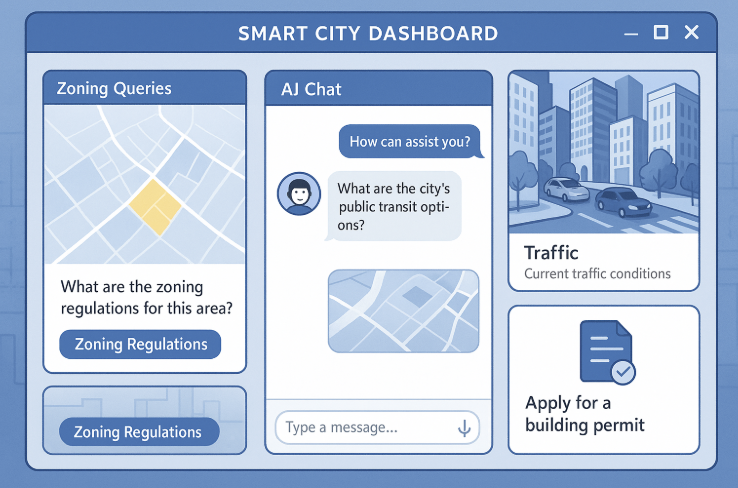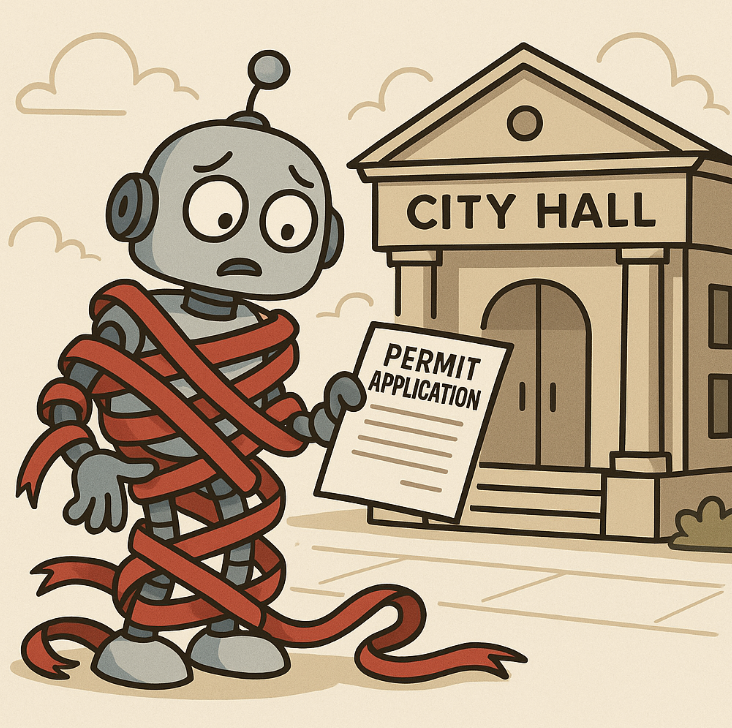Government wasn’t always this complicated. It used to be about fixing roads, keeping water flowing, and making sure the local park didn’t turn into a jungle. Now? Just asking about a permit feels like trying to unlock a hidden level in a glitchy 90s video game. Only with worse graphics and way more paperwork.
This isn’t about politics. It’s about regular people wasting time on stuff that should be simple. Calling city hall shouldn’t feel like a mini-boss battle. And yet, trying to get a basic zoning answer turns into a two-hour saga. If Gandalf had to get a permit to grow a small patch of Longbottom Leaf in his backyard, he’d still be stuck on hold with the zoning office.
He’s got more important things to do. Like, you know, saving Middle-earth. And so do you. Running your business. Getting the kids from school. Just living your life. That’s why this stuff has to get better.

How Did Government Get So Complicated?
Let’s say you want to build a shed. Not launch a rocket. Just a little place for your tools. But now you’re deep-diving into zoning codes that read like ancient scrolls, buried five clicks deep in some sketchy city website. Government websites, by the way, are their own kind of broken. Even the most tech-savvy people struggle to find anything useful. (I'm looking at you, Illinois). And when you try to get answers? You get bounced between departments like a confused Mando trying to barter with Jawas for pieces of his busted ship.

Your car sticker’s expired? Congrats, now you're logging into three systems, printing out a form, and standing in line. It’s 2025. Why does it still feel like 2002?
This isn’t about laziness. Most city employees want to help. But they’re stuck with tech that should’ve been retired years ago. Data is scattered across ancient systems that don’t talk to each other. It’s kind of amazing anything works.
AI Can Actually Fix This
Most questions people ask the government are simple. "When’s trash day?" "Can I build a fence?" "Why’s the water shut off again?" The answers exist. They're just buried under red tape and terrible UX.
This is where AI actually helps. Not the Hollywood kind with glowing red eyes. The kind that gives you a straight answer and lets you move on with your day.

Take Omaha. They’re not building the Death Star over there (Unless that new circular project is more than it looks. Pretty sure it’s just a data center. Or maybe it’s Project Stardust?). But they are doing smart stuff:
- ZoningGPT and LegislatureGPT: You ask it a question, it gives you a plain-English answer. If it hits a wall, a human picks it up without missing a beat.
- Mayor’s Office Hotline: Not a junky bot. A real AI that can hold a convo and help you out. If it gets stuck, a human jumps in. No repeating yourself.
- The Pothole Drone: Yes, really. A drone flies around spotting potholes, faded lines, and missing signs, then routes it all to the right team. Fast. Efficient. Somewhere, Batman’s probably taking notes.

And there’s a lot more cities could be doing:
- 311 Call Analysis: Find the patterns. Fix the right problems first.
- Auto-generated Reports: Council summaries, public notices, boring paperwork. Let the bots handle it.
- Smarter Budget Planning: Crunch data. See trends. Make better decisions.
- Better Messaging: Clear updates that sound like humans wrote them.
- Onboarding That Doesn’t Suck: Train new staff without 80-slide decks and outdated quizzes.
- Multilingual Support: Serve everyone. Not just the English speakers.
- Crisis Communication: Fast, clear alerts when stuff goes sideways.
This isn’t science fiction. It’s just a better way to use the tools we’ve already got. Cities resist change because it feels hard. But not changing? That’s the real problem.
What's the Catch?
AI's not a miracle worker. It needs clean data, thoughtful planning, and yeah-real humans behind the curtain making sure it doesn't go rogue or spit out nonsense.

Privacy? Huge deal. You don't want your local pothole report turning into a data grab. That's why human-in-the-loop setups and clear boundaries matter.
Also, let's be real: if your AI tool feels like a clippy reboot or just spits out canned legalese, it's not helping anyone.
Bottom line: don't slap AI on top of a mess and expect magic. Fix the foundation, use the tech wisely, and then-maybe-you've got something that actually works.
Final Thoughts: What Are We Waiting For?
Whether your town has 10,000 people or 10 million, the pain points are the same. Confusing forms. Outdated systems. Disconnected departments.
Good news? You don't need to rebuild everything. You just need to start.
That's what we do at Apolo. We help cities skip the buzzwords and go straight to the good stuff. Real tools. No fluff. No nonsense.
So maybe it's time to give an AI mayor a shot. Worst case? You save a bunch of time. Best case? You fix the system and dodge a Death Star or two. Honestly, we'll take either.

And yeah, shameless plug time. This is exactly the kind of thing we do at Apolo. We don't just slap a chatbot on your website and call it innovation. We actually help cities untangle their mess of disconnected systems and make stuff work like it should've all along. It's not magic. It's just better tech, better UX, and people who give a damn.
.svg)


